These Are the Women Who Helped Our Moms Raise Us
Latest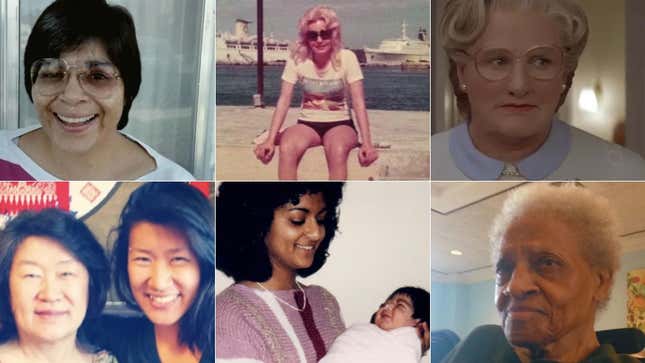

In 2017, for Jezebel’s annual Favorite Women of the Year post, Stassa Edwards acknowledged “all of the women who help me raise my child,” writing:
My son is raised by a web of women, including preschool teachers and my mother, who is the babysitter, after-school pickup, and grandmother all-in-one. The work of childcare is more often than not invisible, and for preschool teachers grossly underpaid, but without it, my house would not function nor, practically speaking, exist. So thank you to all of the women who have helped me raise my son for the last four years, you’re my true sheroes.
With this in mind, this Mother’s Day we wanted to recognize those women in our own lives who helped our moms out with the herculean task of raising us.
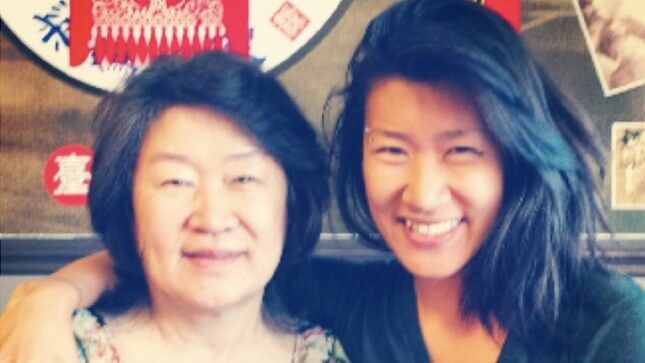
My aunt Melody moved to the United States from Taiwan in part to help my mom raise my two older sisters. My ayi was young at the time, much younger than I am now. It’s astonishing to me that she so willingly uprooted her life for her family. It’s not that simple, of course—she came for her own sake too.
We’ve always been close. Everyone always assumes I’m her daughter (sorry mom!), and it’s true that we share some superficial physical similarities—our noses, our eyes, our smiles. But in truth they run deeper—we’re both criers, liable to start sobbing at the drop of a hat. We both have a cackle for a laugh, which we let loose at random moments. Often, when I say something she thinks is impertinent, she’ll give me a stern look before shaking her head with a smile. Does she see some of herself in me? I hope so. Whenever I leave her home in San Diego after a visit, she sends me off with what she thinks I’ll need in the world. Three bottles of water, hand sanitizer, lip balm, more oranges that I can carry.
It was only when I became an aunt myself that I began to understand the love you can feel for a child that is technically not your own, but that belongs to you in so many other ways that matter.—Esther Wang
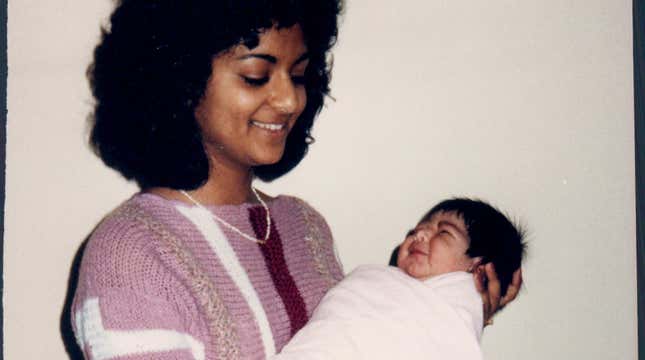
Aside from my own mother, there is no other woman who has shaped me more than my dad’s sister, my Buaji. Growing up, I only saw her at family gatherings every few years. One of my earliest memories of her helping her plant flowers when I was about 5. I remember that it was a responsibility I took very, very seriously, and I insisted that she call next time she needed help gardening. I was devastated when she called a year later, telling me she needed my help, but I couldn’t fly across the country to garden with her.
She has always been a woman I wanted to emulate; compassionate, whip smart, and always—always—on top her shit. As I grew older, Buaji increasingly became a source of wisdom, strength, and compassion when I felt like I had no one else to turn to or talk to. At a time when my independence, my outspokenness, and my feminism were seen as troublesome, she encouraged me and embraced my identity. Slowly, her gentle advice and ability to listen without judgment helped me find my path forward, and her unwavering support instilled a deeper confidence in who I am and who I would become.
In Hindi, the word for father’s sister is different than mother’s sister, Mausi, which means “mother-like.” While she is my Buaji, I think that the title of Mausi is a more fitting description of our relationship.—Prachi Gupta
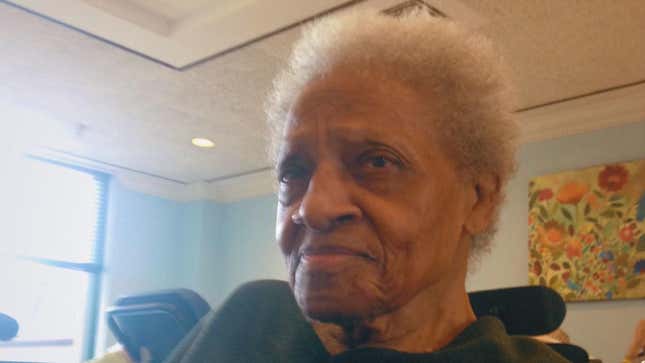
I never knew my grandparents. My mom’s mom died just a couple months before I was born, and if either of my dad’s parents were alive when I was born, they weren’t here long enough for me to form memories of them.
But I had my great aunt Ethel, also known as Aunt Ed.
Aunt Ed was born in 1920 in North Carolina, a scrappy tomboy with a slew of brothers and sisters. I don’t know many details about her life beyond what her son or my mom have told me. I know she used to sneak out of her house as a teenager to meet up with boys and drink. I know she got a whoppin like anyone of that era would have. I know she was in a short-lived relationship with a man who was never in their son’s life; I don’t know his name, I probably never will. I know she used to smoke, but quit when her grandson was born.
But that’s not the Aunt Ed I actually knew. The Aunt Ed I knew, the one I grew up with, flew in from Chicago every year to stay with my family for months on end, keeping an eye on me while my parents worked long hours. She watched her stories (CBS soaps only) every afternoon and read from her Catholic prayer book every night, its busted binding held together with rubber bands and, well, prayer. She was both mild-mannered and temperamental. She was funny and made me laugh. She was also an old-school black southern woman who likely wasn’t used to my laidback California bullshit or my sharp tongue. She once called me the most undainty girl she has ever known, a charge I didn’t quite understand as a nine-year-old, but knew must have been bad. I probably cried about it, even though she wasn’t exactly wrong (and still isn’t). She fixed grits for breakfast, boiled hot links for my lunch, and fried chicken for dinner; she always said she was the world’s worst cook, but she wasn’t, not by a long shot. And while she became a less constant presence in my teens, she was essential to my formative years. Her tough love left its mark.
I’m speaking in the past tense, which is perhaps unfair. At 99 years old, she’s still alive, but while she’s a permanent fixture in my childhood memories, I’m no longer a fixture in hers. She’s suffered from dementia for years. The last time I saw her was in 2017 at a nursing home in the Lincoln Park neighborhood of Chicago. It was hard to see her, barely lucid, barely aware of who she was, let alone who I was. That’s where this former country girl who used to gleefully call herself the HNIC lives now, and the thought makes me nauseous. All I can do is try to think of her as she was when I was young; sitting in front of the TV with her stories on, her white hair gathered in a spiderweb thin hairnet, and her beat-up prayer book on her lap. —Ashley Reese
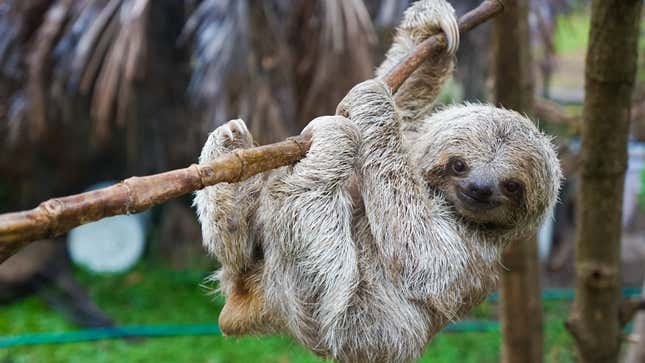
I call them my Slothy Aunties, but they are neither sloths, nor are they my aunts. The name arrived when they missed my birthday a couple years ago and gave me a card with a sloth on it. Margie and Wini, as they are more commonly known, were longtime best friends to my mom, who died five years ago.
They were there throughout my childhood, but in the years since my mom’s death, we’ve developed a habit of somewhat regularly going out to a restaurant for dinner, and talking and talking until someone starts vacuuming and stacking chairs. And then we stand outside for approximately 30 minutes saying goodbye to each other, while I shiver and they ask whether I have a jacket and do I want to borrow one of theirs?
They are once-hippie Berkeley ladies with soft, flowing fabrics and fun eye glasses. One time, they showed up to a reading I did at a Good Vibrations while standing in front of a wall of dildos, and they seemed so proud. They give lingering hugs and meaningful eye contact. If they ask me how I’m doing—even if I am doing JUST FINE—I still might feel the need to burst into tears.
The Slothy Aunties didn’t help raise me, but then maybe they did, because I don’t know if we’re ever fully “raised.” Over the last five years, as I’ve grieved my mom and watched my dad start dating again and gone through pregnancy and early parenthood, they have been there to answer the questions about my mom that I never got to take direct to the source. But they’ve also become their own unique sources of wisdom, friendship, and inside jokes.—Tracy Clark-Flory
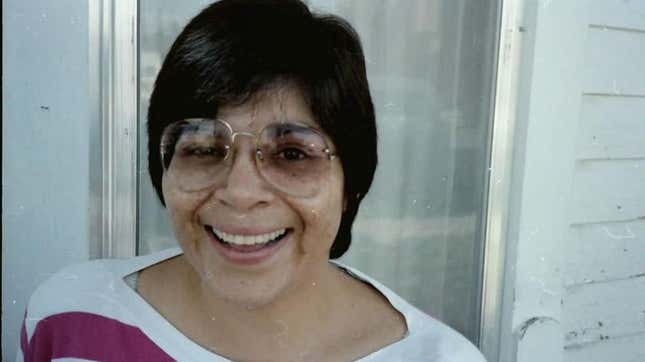
My tia Josie was daring, creative, liberated, raunchy, and a genius. My mom’s sister (the youngest of 11, so she had to put up with some bullshit), Josie left Cheyenne for San Francisco in 1969, right after high school, and never looked back, her brain too big for that shitkicker town and seeking rock and roll and freewheeling spirits and probably acid. In the 1980s, after she spearheaded and established the United States Postal Service’s first outreach program for minority employees, she took work trips to Washington, DC a lot, and spent all her free time exploring the Smithsonian; she’d call me up on the phone and describe everything she saw there in great detail, knowing I was fiending to see the world the second I got old enough to leave, too.
On her too-infrequent visits, Josie brought me books and taught me how to thrift shop, always on the hunt for overlooked costume jewelry and the most outrageously gawdy shit she could find. Her wit was as savage as her generosity was overwhelming; I distinctly remember, at age nine over sandwiches at Arby’s, she advised, deadpan, “You should start smoking, it’ll help you quit biting your nails.” I think I was seven when she first told me what would become our catchphrase: “I love you so fucking much I could just shit.” At four, she sent me a postcard featuring the drag queens of Boylesque, and by eight she had taken me to my first drag cabaret in San Francisco. Beach Blanket Babylon. My devoutly Catholic mom was lightly scandalized, thinking I was too young, but it is undeniable that everything Josie did for me fully embedded itself in my DNA. (And last year, I took my mom, age 80, to her first Brooklyn drag show; she loved it.) She nurtured all my personality quirks—and not just mine, but those of my hundred or so cousins, who love her as fiercely as I do—and encouraged me to be as freaky as I wanted. And I’m fortunate to be so much like Josie that for as long as I can remember, my mom has slipped and called me her name by mistake, and vice versa. Josie. Julianne. We were inseparable, inextricable. She taught me how to moon, and she gave me the moon. —Julianne Escobedo Shepherd
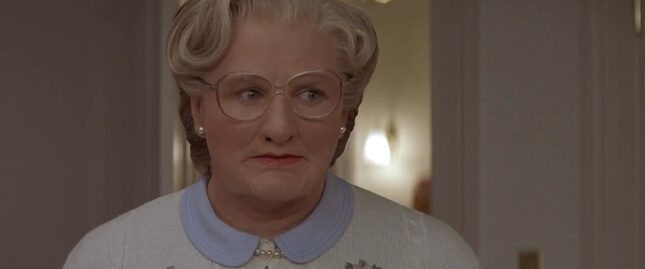
Nancy watched my sisters and I a few days a week from the time I was in kindergarten until after I graduated high school (I have a lot of younger sisters). I think she was in her mid-50s when she started. She was not our nanny; she was our Nance. It was my understanding that she was only employed to babysit on the days when my mother worked (part- and then eventually full-time); nonetheless, she tidied up the house to save my mother from facing more work when she got home from work. She had come to the U.S. from Ireland in her youth, and I think she believed that taking care of kids meant taking care of the home they lived in. She did not do this alone. In her firm, loving way, she had us pitching in. I contracted from her an almost OCD approach to using as few dishes and as little cutlery as possible when cooking and serving food; she’d always caution me not to “dirty another dish” unless it was totally necessary, even though we had a dishwasher and it was clearly no burden to stuff something else in there. When I think about her, I mostly think about eating lunch—I’d have soup in my living room and watch game shows on USA or Video Soul on BET. I didn’t notice it at the time, but she never, not once, implied that I should be anything other than who I was. She gifted me adult respect as a child. She was so warm, good humored, and unflappable that when I saw Mrs. Doubtfire in the theater, I thought, “Minus the divorced-dad-does-drag-to-see-kids thing and the prosthetics, yep—that’s Nance.”—Rich Juzwiak
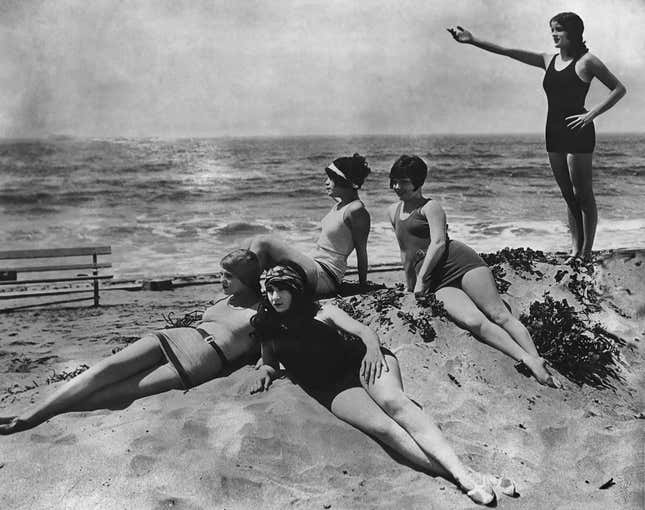
One of my earliest childhood memories is of falling asleep on a blanket on the beach while my mother and aunts chatted nearby. I can still recall the feeling of drifting in and out of sleep while listening to their voices. That would turn out to be a forever sound, the sound of my whole life: my aunts laughing, talking shit, doting. Along with my mother, they have modeled resilience and compassion through struggle, offered me endlessly wise counsel, and never once asked me to return their Tupperware after sending me home with more leftovers than is reasonable. I come from a large family, so I’m going to settle for just thanking them here as a collective. I love them so much and have been so well loved by them. I can hardly believe my luck. – Katie McDonough
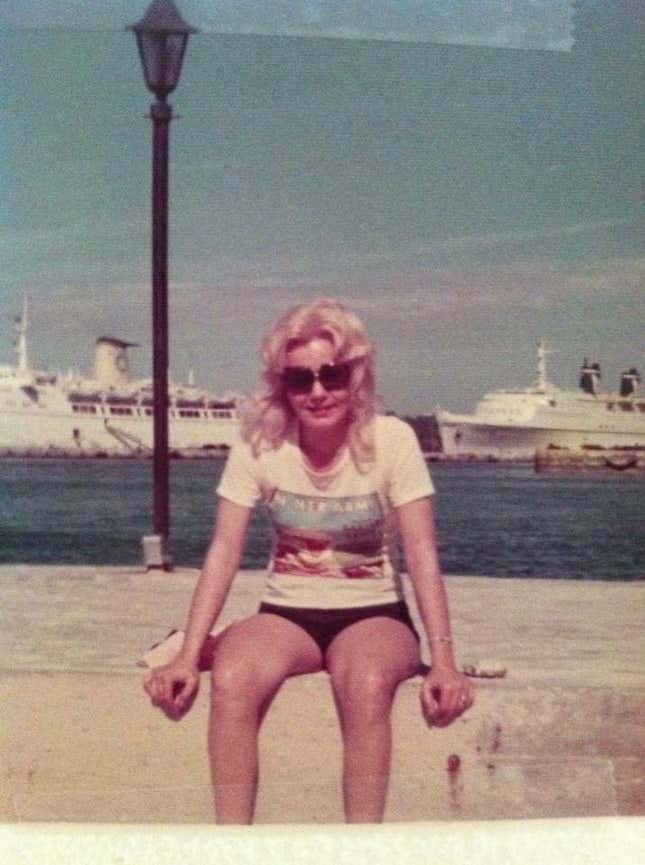
Other than my mom, the woman who raised me the most was her mom, my late grandmother Margaret. We called her “Mom Mom” (very literal) Peggy and I can’t think of a time in my life when she wasn’t there. She was a fan of true crime and horror movies and, just as she did with my mother, she let me watch whatever I wanted. That’s how I ended up watching Halloween for the first time when I was only about seven or eight years old and spent the rest of the night unable to sleep, convinced Michael Myers was going to murder me, and forever addicted to scary movies. She would pick up me and my brother from school as kids and drive us immediately to 7-Eleven where we would inevitably ruin our dinner appetites on Tastykakes (a South Jersey delicacy) and huge Slurpees, while she would grab a large Boost! drink (another South Jersey delicacy.) She loved Pitbull (“I love the way he dances!” she once told me), yellow roses, and Seinfeld. She would bring criminally loud snacks to the movie theater including the noisiest potato chips imaginable and every single time would act like we were smuggling in hard drugs as we passed by the usher. She raised six incredible kids, my mom being the youngest, and in a way all of their kids. She was our family’s North Star and I miss her every day. – Hazel Cills